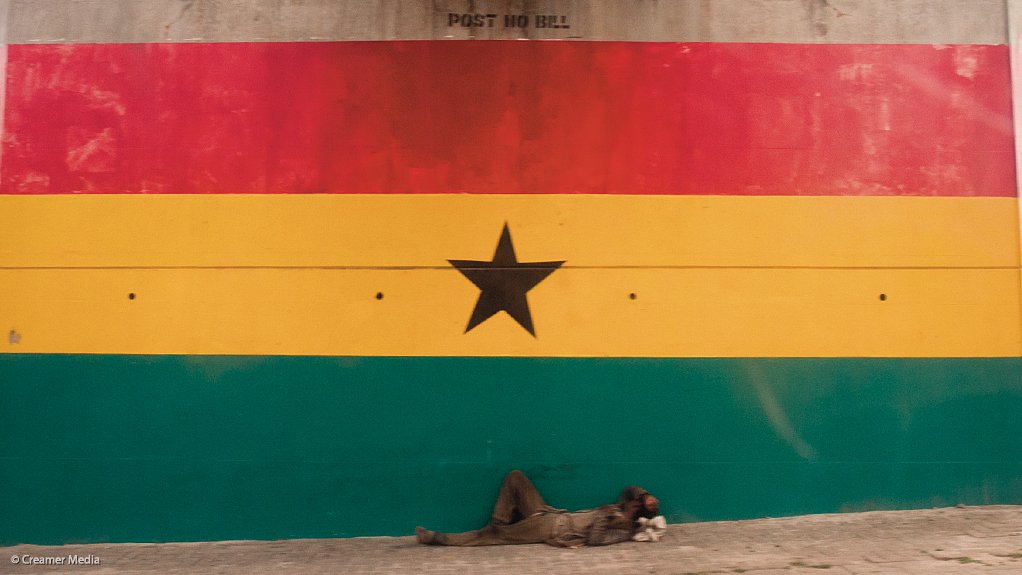Ghana has secured around $918-million from the International Monetary Fund (IMF) to support an economic bounce-back after a growth slowdown in recent years.
The IMF’s immediate release of $114.8-million under the three-year extended credit facility (ECF) would enable Ghana to jump-start its medium-term economic reform programme aimed at restoring macroeconomic stability and debt sustainability, while sustaining higher economic growth and job creation.
The programme aimed to reverse the impact of large fiscal and external imbalances that resulted in a growth slowdown and that placed the West African country’s medium-term prospects at risk.
“The government has embarked on a fiscal consolidation path since 2013, but policy slippages, exogenous shocks, [acute electricity shortages] and rising interest costs have undermined these efforts,” said IMF deputy MD and acting chairperson Min Zhu.
In addition to a ballooning wage bill, poorly targeted subsidies and rising interest payments, which had outpaced the rising oil revenue and led to double-digit fiscal deficits, a sharp contraction in the industrial and service sectors decelerated growth to 4.2% during 2014.
A “forceful and sustained” implementation of the programme was deemed essential to mitigate Ghana’s macroeconomic imbalances, which had resulted in high inflation, a decline in reserves, high interested rates and a significant depreciation of the country’s currency – the cedi. The implementation of the programme would also enhance investor confidence.
The new ECF-supported programme, which Zhu said was anchored on Ghana’s Shared Growth and Development Agenda, would allow the nation to achieve a sizeable and frontloaded fiscal adjustment while protecting priority spending, strengthen monetary policy by eliminating fiscal dominance, rebuild external buffers and safeguard financial sector stability.
“The envisaged fiscal consolidation is projected to further dampen nonoil economic growth initially and reduce inflation in 2015, but growth is expected to rebound in the following years.
“Nonoil gross domestic product (GDP) growth will decelerate further to 2.3% in 2015 before picking up in the following years, reaching 5.5% by 2017,” he said.
The programme aimed to turn the primary balance from a deficit of 3.7% in 2014 into a surplus of 0.9% of GDP this year and 3.2% in 2017.
EMAIL THIS ARTICLE SAVE THIS ARTICLE
To subscribe email subscriptions@creamermedia.co.za or click here
To advertise email advertising@creamermedia.co.za or click here











